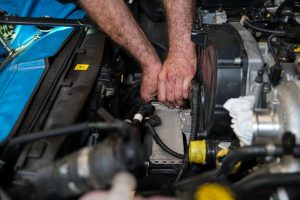Car and Truck Air Conditioning Repair: Boost Cooling Performance
Key Takeaways
Is your car or truck feeling the heat this summer and in need of repair or service? Don’t sweat it! When it comes to car and truck air conditioning repair, you need a reliable solution that gets you back on the road in cool comfort. Our expert team specializes in diagnosing, repairing, and fixing air conditioning issues quickly and efficiently. Say goodbye to sweltering drives and hello to a breeze of fresh, cool air inside your vehicle. With our professional services, you can enjoy a comfortable ride no matter how high the temperatures soar outside. Stay cool and keep cruising with our top-notch car and truck air conditioning repair services.
Key Takeaways

Regularly check for signs of AC problems such as weak airflow or strange odors to catch issues early.
Schedule routine maintenance to ensure optimal performance and prevent costly repairs in the future.
Repair AC issues promptly to avoid further damage to the system and maintain a comfortable driving experience.
Enhance AC performance by cleaning or replacing filters, checking refrigerant levels, and inspecting for leaks.
Keep your vehicle’s AC system running smoothly by following manufacturer recommendations and seeking professional help when needed.
Recognizing AC Problems
Warning Signs
Check for weak airflow at the highest fan setting. If you notice a significant decrease in airflow, it could indicate a problem with your car’s AC system. Another red flag is water condensing or dripping onto your foot while driving, which may suggest issues with the AC’s drainage system. unpleasant mildew and mold odors emanating from the AC vents signal potential mold buildup.
Troubleshooting Hot Air
Verify if the AC functions only while the vehicle is in motion. This could point to a problem with the compressor clutch or electrical issues. If your car’s AC blows air only slightly cooler than outside temperature, there may be refrigerant leaks affecting cooling efficiency. Consider a freon recharge if the AC loses cooling power, as low refrigerant levels can lead to poor performance.
Quick AC Check
Perform a quick check for any unusual odors coming from the AC vents, which could indicate mold growth or a clogged filter. Test the airflow strength at different fan settings to ensure consistent cooling performance. It’s essential to check if the AC is cooling effectively both in idle and moving conditions to identify any underlying issues promptly.
Performance Evaluation
Evaluate the overall cooling efficiency of your car’s AC system by assessing how quickly it cools down the interior cabin. Monitor the consistency of temperature output in different weather conditions to ensure optimal performance. Also, assess the time taken for the AC to cool the cabin adequately, as prolonged cooling times may indicate problems with the compressor or refrigerant levels.
Importance of Maintenance
Regular Check-Ups
Schedule routine inspections to ensure the AC system remains in top condition.
Keep an eye on any changes in AC performance to address air issues promptly.
Opt for professional maintenance services to prevent major AC problems from arising.
Freon Recharge Tips
Frequency and Duration
Know the recommended frequency for AC system check-ups to maintain efficiency.
Determine the ideal duration for regular maintenance to extend the AC’s lifespan.
Plan for periodic evaluations to prevent unexpected breakdowns and costly repairs.
Safety Measures
Adhere to safety protocols during AC repair to avoid accidents or injuries.
Wear protective gear when handling refrigerants to protect your skin and eyes.
Ensure proper ventilation during all AC maintenance procedures to avoid inhaling harmful fumes.
Addressing AC Issues

Common Repair Services
The AC compressor plays a crucial role in cooling the cabin air by compressing refrigerant gas. It circulates the refrigerant through the system, enabling heat exchange and cooling. Understanding its function is key to diagnosing and repairing air conditioning issues.
The AC condenser works to reduce the temperature of the refrigerant gas, turning it into a high-pressure liquid. This process allows heat to dissipate from the system, contributing to efficient cooling. Any issues with the condenser can lead to inadequate cooling performance.
Exploring the AC evaporator’s significance reveals its responsibility for dehumidifying the cabin air. As warm air passes over the cold evaporator coils, moisture condenses and is removed from the air. A malfunctioning evaporator can result in poor cooling and discomfort inside the vehicle.
Freon FAQs
Recharge Needs
Signs indicating low freon levels include warm air blowing from vents and reduced cooling efficiency.
Maintaining proper freon levels is essential for optimal AC performance and preventing damage to components.
Opting for a freon recharge can be a cost-effective solution to restore cooling capacity and address AC problems promptly.
Adding Freon Safely
Following correct procedures when adding freon involves locating the low-pressure port, attaching a gauge, and slowly injecting the refrigerant.
Improper freon handling can lead to leaks, environmental harm, and potential health risks.
Adhering to manufacturer guidelines ensures safe practices when adding freon to your car’s air conditioning system.
Enhancing AC Performance
Maintenance Benefits
Regular maintenance of your car’s air conditioning system is crucial for prolonging its lifespan. By conducting routine checks and servicing, you can prevent major issues that may lead to costly repairs down the line. Scheduled maintenance not only ensures a longer-lasting AC system but also contributes to consistent cooling performance.
Pros:
Extends AC system lifespan
Prevents costly repairs
Ensures consistent cooling performance
Opting for regular maintenance means you are taking proactive steps to keep your car’s AC in top condition. By addressing minor issues early on, you can avoid more significant problems that could result in expensive repairs. Maintaining your AC system helps it operate efficiently, providing optimal cooling during hot weather.
Optimal Cooling Strategy
To enhance your car’s air conditioner performance, develop a cooling strategy tailored to your driving habits and local climate conditions. Implementing energy-efficient practices, such as rolling down windows at lower speeds instead of using the AC, can help optimize your AC system’s performance. Moreover, consider using sunshades or parking in shaded areas to reduce the workload on your AC unit.
Cons:
Requires additional effort
May need to adjust driving habits
Initial investment for sunshades or shaded parking
Creating an optimal cooling strategy involves understanding how different factors affect your AC system’s efficiency. By adjusting your driving habits and utilizing energy-saving techniques, you can maximize the performance of your car’s air conditioning while minimizing fuel consumption. Furthermore, taking simple measures like using sunshades can significantly reduce the interior temperature of your vehicle, lessening the strain on the AC system.
Final Remarks
You’ve learned to recognize common car and truck AC issues, the importance of regular maintenance, how to address problems, and ways to enhance performance. By staying proactive and addressing AC concerns promptly, you can avoid costly repairs and ensure your comfort on the road. Remember, a well-maintained AC system not only keeps you cool but also contributes to your vehicle’s overall efficiency.
Don’t wait until your AC fails completely; schedule regular check-ups and address any issues promptly. By taking care of your car or truck’s air conditioning system, you’re not only ensuring a comfortable ride but also extending the lifespan of your vehicle. Stay cool and keep your vehicle running smoothly by giving your AC the attention it deserves.
Frequently Asked Questions
How can I recognize AC problems in my car or truck?
If you notice weak airflow, strange smells, or unusual noises coming from your vehicle’s AC system, it may indicate issues. Look out for leaks, warm air blowing, or frequent cycling on and off as signs of potential problems.
Why is regular maintenance and service important for car and truck air conditioning systems?
Regular maintenance ensures optimal performance, extends the lifespan of your AC system, and helps prevent costly repairs. It includes checking refrigerant levels, cleaning filters, inspecting belts, and identifying minor issues before they escalate.
What are common AC issues that need immediate attention in vehicles?
Issues like refrigerant leaks, compressor malfunctions, electrical failures, or clogged filters require prompt attention to prevent further damage to the AC system. Ignoring these problems can lead to decreased cooling efficiency and potential safety hazards.
How can I enhance the performance of my car or truck’s AC system?
To boost AC performance, ensure proper insulation in the vehicle, keep windows closed while driving, park in shaded areas when possible, and avoid overworking the system by setting the temperature moderately. Regularly servicing the AC unit also improves its overall efficiency.
Is it advisable to attempt DIY repairs on an auto or truck’s air conditioning system?
While basic maintenance tasks like changing filters can be done at home, complex repairs should be left to professional technicians. DIY attempts without proper knowledge and tools may cause more harm than good and void any existing warranties.
